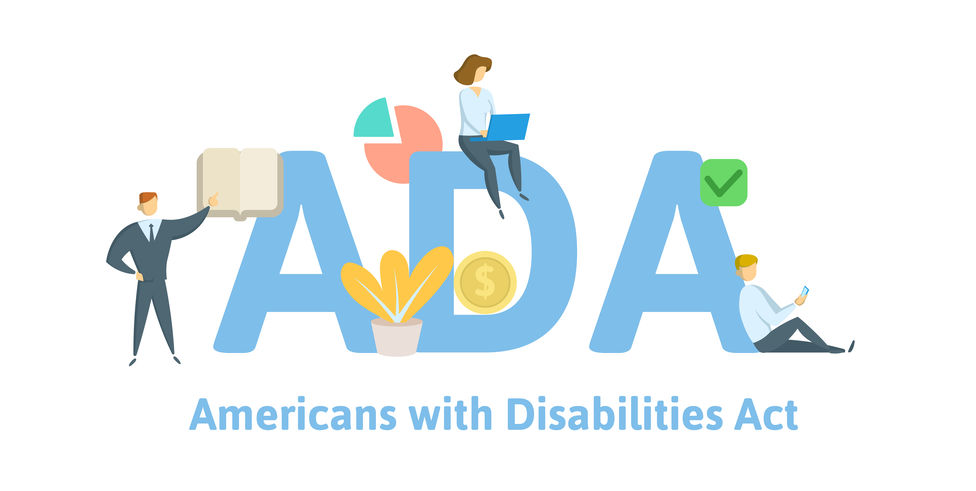What is ADA?
ADA stands for American with Disabilities Act. Title III of the ADA prohibits any “public accommodation” from denying “full and equal enjoyment” of its services or facilities on the basis of a disability.
There are no clear regulations defining website accessibility. Typically, courts conduct a flexible, case-by-case analysis, to ensure that the Act requirements are not unduly burdensome to businesses.
Which Websites are Required to be ADA Compliant?
- Businesses that operate 20 or more weeks per year
- Those that fall under the category of “public accommodation”
Who can file an ADA Lawsuit?
Title III applies to barriers to accessing a “place of public accommodation.” Regardless of the type of barrier, there must be some nexus between the alleged violation and a physical place of public accommodation. To file an ADA claim, a plaintiff must establish (1) that he or she is disabled; (2) that the defendant owns, leases, or operates a place of public accommodation; and (3) that the defendant denied the plaintiff—on the basis of the disability—full and equal enjoyment of the premises.
In addition, the plaintiff must have personally encountered the barrier complained of or must have been deterred from visiting the public accommodation as a result of the barrier.
When considering whether there is a nexus, courts typically distinguish between “an inability to use a website to gain information about a physical location and an inability to use a website that impedes access to enjoy a physical location.” Only the latter is sufficient to state a claim. In other words, the company’s website has to preclude the full enjoyment of the physical place of business. For example, an airline’s website was not considered by a court to be a “place of public accommodation”, whereas “Domino’s Pizza” website was found to be a “place of public accommodation.”
Can you be sued for not being ADA Compliant?
Under the ADA, people with disabilities have the right to file suit in federal court and to obtain injunctive relief (an order to stop ADA violations) as well as attorney’s fees. Monetary damages, however, are not permitted.
How do Courts view ADA Website Lawsuits Today?
In recent years, federal judges from Florida to New York have expressed their growing frustration over the rise in the number of Title III claims filed against both big and small businesses.
In a 2019 case, Price v. Escalante – Black Diamond Golf Club LLC, the court wrote that “The spate of these cases has outpaced any regulations from the Department of Justice on what businesses must do to have ADA compliant websites, and courts have reached no consensus.” In that case, a Florida resident had filed more than a hundred Title III cases against businesses in the Daytona Beach area, seven of which were against golf clubs. At the same time, the plaintiff was found to have had no intentions of frequenting any of them. At the end of its opinion, which was favorable to the Gold Club, the court opined that “. . . the idea of universally or fully accessible websites is essentially a myth given today’s technological constraints.”
Over the last two years more than four hundred similar lawsuits have been filed in New York. More than a hundred have been file in just October and November of 2019. Most of them bore the names of the same plaintiffs against companies that they have targeted before. Although filing duplicative lawsuits is permissible by law, courts generally look for a “concrete or particularized injury” to the plaintiff.
In a 2019 New York case, Himelda Mendez v. Apple, Inc., the court required the plaintiff to provide the date of the attempted access to the physical store and the good that she was unable to purchase. The court later ruled against the plaintiff, following other courts in disfavoring “serial” ADA website lawsuits.
Are there Alternatives?
According to the Department of Justice, any business that has an inaccessible Website can also comply with the ADA by providing an accessible alternative for individuals to enjoy its goods or services, such as a staffed telephone information line.



One Response
Can you refer me to a NY attorney who defends ADA website lawsuits.
Thank you,
Jeffrey Weinsten